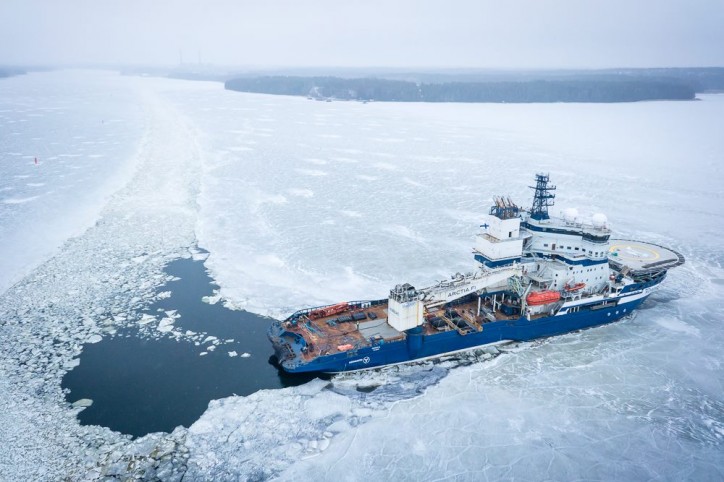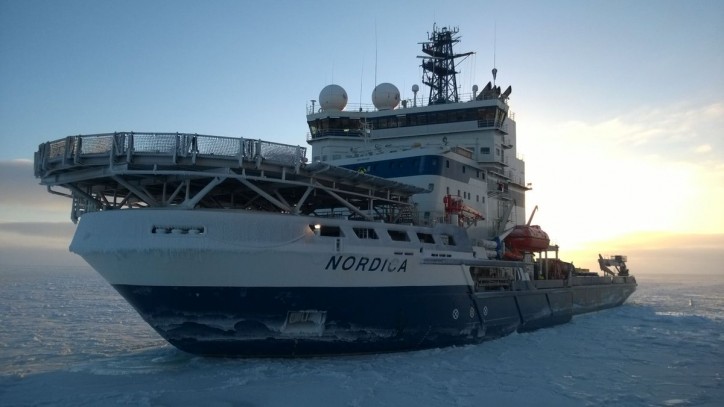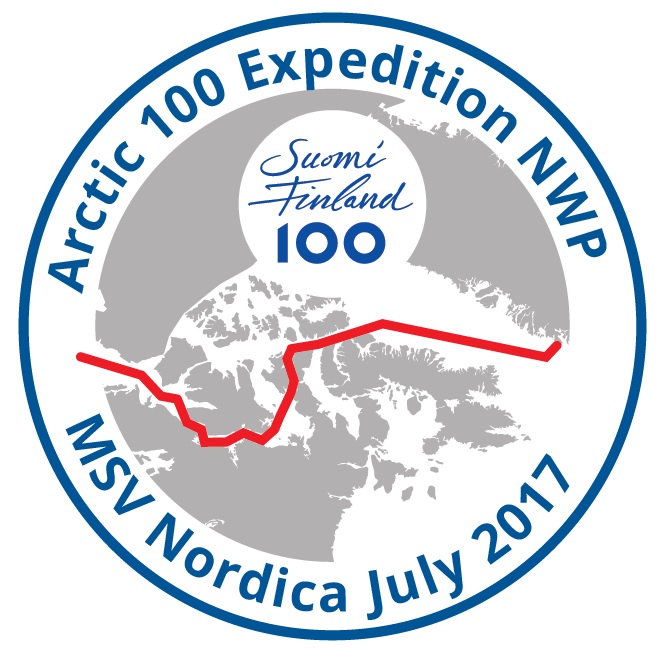What is it like to spend a month on a multipurpose icebreaker sailing through the Northwest Passage? How does global warming affect the sea and ice conditions near the North Pole? How does it feel to spend a month on an icebreaker cruising through uninhabited regions?
Arctia’s multipurpose icebreaker Nordica will transit the Northwest Passage (NWP) this July. The NWP is a sea route connecting the northern Atlantic and Pacific Oceans via waterways through the Canadian Arctic Archipelago. The vessel departs Vancouver, Canada, on July 5th and will arrive in Nuuk, Greenland, before August 1st. To celebrate the centenary of Finland’s independence in 2017 and Finland’s first year as Chair of the Arctic Council, Arctia Ltd. has invited Finnish and international researchers on board MSV Nordica during this Arctic 100 Expedition.

You can follow the Expedition on the Facebook blog @Arctic100Expedition and on Arctia’s Instagram (@arctia_tld) and Twitter (@ArctiaLtd) accounts by using hashtags #Arctic100 and #Nordica. The blog will serve as a diary for the crew and participants of the Expedition.
One of the explorers is Ari Laakso, science communicator at the University of Lapland’s Arctic Centre, who will be writing a travel journal together with researcher Ilona Mettiäinen on the Arctic Centre Facebook pages @ArcticCentre and on Twitter @Arctic_Centre.

“I am interested in learning what it is like to spend three weeks on an icebreaker, what it involves, and what kind of things we will encounter. I will interview the ship crew and the researchers on the expedition, and observe what the Northwest Passage looks like in the summer of 2017. I will also make some observations on Arctic technology”, Laakso says.
Example of shared use of icebreakers for polar research
International polar expeditions during transit voyages of commercial icebreakers are very rare. This Expedition demonstrates the idea of jointly using all icebreakers around the world, not only the limited number of national polar research vessels, for research purposes in polar areas. In addition to taking researchers on board during transit voyages, icebreaker operators could in the future charter vessels to joint ventures of multiple research institutes in a flexible way. Arctia Ltd. wants to be in the forefront of this new way of thinking: pooling and sharing of Arctic assets.
During the Expedition, the vessel’s crew and the experts on board will observe ice conditions and develop international ties between business, academia and First Nations of the Arctic. The Expedition also reaches out to deepen international and local dialogue in the field of Arctic research. This is MSV Nordica’s second transit through the NWP and it is conducted in cooperation with the Canadian Coast Guard, Transport Canada, Martech Polar, Nunavut Impact Review Board, and the Nunavut Fisheries and Marine Training Consortium.
About two years ago Arctia Ltd. invited over 100 universities and research institutes around the world to join in planning and executing the Arctic 100 Expedition. The concept was new to the research world, and because of the tight schedule for making the decision on and preparing for a transit through the NWP, many institutes, especially with meteorological, biological and other natural-science research interests were unable to join the Expedition.
However, the Finnish Meteorological Institutes’ (FMI) new ice and weather service concepts are tested for user experience during the Expedition. The FMI will send MSV Nordica sea-, ice- and weather forecasts covering a large area between Bering Strait and Nuuk. The forecast is issued by a meteorologist and a sea expert in duty three times a week during the transit.
“This is part of our Arctic service development. With climate change, safe and sustainable operation will require up-to-date Arctic know-how”, says Head of Group Antti Kangas from the Finnish Meteorological Institute. Meteorological cooperation is one of the four priorities of Finland’s Chairmanship of the Arctic Council in 2017–2019.
“Research on both the Arctic and the Southern Ocean is essential for the study of climate change and many other challenges facing the world today. Yet many nations and institutes around the world with research interests in polar areas do not have the logistical means to access these areas. Therefore, Arctia Ltd. offers its fleet and expertise for the international research community”, explains Eero Hokkanen, Communications Manager at Arctia.
Arctia Ltd. continues dialogue with the world of research to solve the challenges of combining lengthy funding and planning processes in academia with often fast decision-making in the shipping industry. Facilitating knowledge and data exchange between industry and academia is one of the five overarching themes of the Arctic Economic Council (AEC) chaired by Arctia’s President and CEO Tero Vauraste in 2017–2019.

Source: Arctia